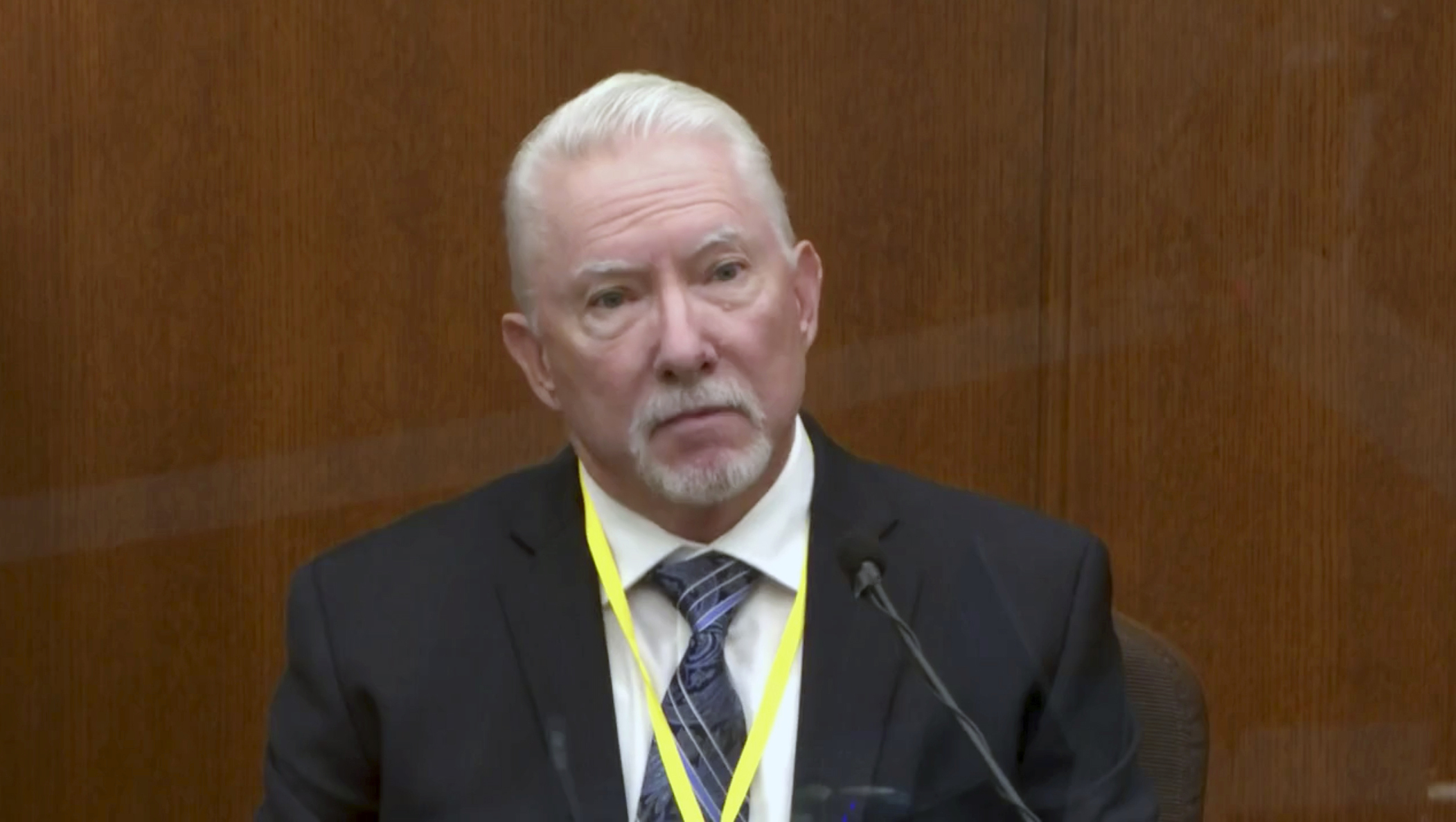Defense expert says Chauvin was justified in pinning Floyd to the ground


A free daily email with the biggest news stories of the day – and the best features from TheWeek.com
You are now subscribed
Your newsletter sign-up was successful
After nearly two weeks, the prosecution on Tuesday morning rested its case against former Minneapolis Police Officer Derek Chauvin, and the defense began calling its witnesses, including a former police trainer who said Chauvin was justified in using a prone restraint against George Floyd.
Chauvin, a 45-year-old white man and 19-year police veteran, is facing murder and manslaughter charges in the death of Floyd, a 46-year-old unarmed Black man who died while being arrested on suspicion of using a fake $20 bill. A bystander recorded the arrest, and the video shows Chauvin with his knee on Floyd's neck for more than nine minutes.
The prosecution called to the stand several use-of-force experts, police officers, and Minneapolis Police Chief Medaria Arradondo to testify about Chauvin's actions during the arrest, with Arradondo saying he "absolutely" violated department policy, adding, "that is not what we teach."
The Week
Escape your echo chamber. Get the facts behind the news, plus analysis from multiple perspectives.

Sign up for The Week's Free Newsletters
From our morning news briefing to a weekly Good News Newsletter, get the best of The Week delivered directly to your inbox.
From our morning news briefing to a weekly Good News Newsletter, get the best of The Week delivered directly to your inbox.
One of the first witnesses the defense called on Tuesday, former police trainer Barry Brodd, testified that Floyd was resisting officers, and as such, Chauvin was justified in using a prone restraint. Officer Peter Chang, who responded to the scene of Floyd's arrest, also testified that the crowd gathered nearby was "very aggressive," and he was "concerned for the officers' safety, too."
The defense argument is that Floyd's underlying heart disease and the fentanyl and methamphetamine in his system led to his death, not having Chauvin's knee on his neck for more than nine minutes. Several prosecution witnesses testified earlier in the trial that Floyd died due to low oxygen levels, with cardiology expert Dr. Jonathan Rich asserting that it was "truly the prone restraint and positional restraints that led to his asphyxiation."
A free daily email with the biggest news stories of the day – and the best features from TheWeek.com
Catherine Garcia has worked as a senior writer at The Week since 2014. Her writing and reporting have appeared in Entertainment Weekly, The New York Times, Wirecutter, NBC News and "The Book of Jezebel," among others. She's a graduate of the University of Redlands and the Columbia University Graduate School of Journalism.
